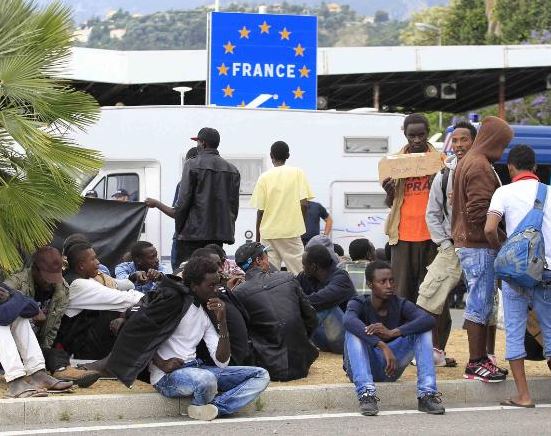
(Photo: AFP)
PARIS, Nov. 6 (Xinhua) -- French Prime Minister Edouard Philippe on Wednesday unveiled new immigration measures, with which the government has opted for a tougher stance on migrants -- a move widely seen as a response to right-wing critics and an attempt to appease conservative voters ahead of municipal elections.
"France is open but is not naive ... It's about sovereignty. We have to take back control of our migration policy," Philippe told reporters, saying "when we say yes it really means yes, and when we say no, it really means no."
The government's new measures include quotas for immigrant workers, tougher rules for newly arrived asylum seekers to have access to non-urgent healthcare and evacuation of illegal migrants camps.
"Our will is to make choices in how we welcome (the migrants): set quantitative goals or quotas, both expressions suit me, for professional immigration," the prime minister said.
He said that parliament would fix annual quotas for skilled immigrants based on a list of sectors where French businesses are struggling to fill jobs.
Ruling out restrictions on migrants bringing over family members, the government plans to clear illegal migrant camps in eastern Paris by year-end and limit access to healthcare for asylum seekers.
Refugees would have to wait three months before enjoying free, non-urgent medical care, while those who do not have asylum status would have access to free healthcare for just six months from 12 months currently.
"With the immigration plan, I believe that we have found the fair balance between rights and obligations, between the desire to reassure our citizens and the courage to not give ground to populism," Philippe said.
In 2018, France granted 33,000 economic migrant visas, while asylum requests rose by 22 percent compared to a year earlier, official data showed.
Last year, 122,743 people sought asylum in France. The lion's share of applications came from citizens of Afghanistan, Albania, Georgia, Guinea and the Ivory Coast, according to the Office for the Protection of Refugees and Stateless Persons (OFPRA).


